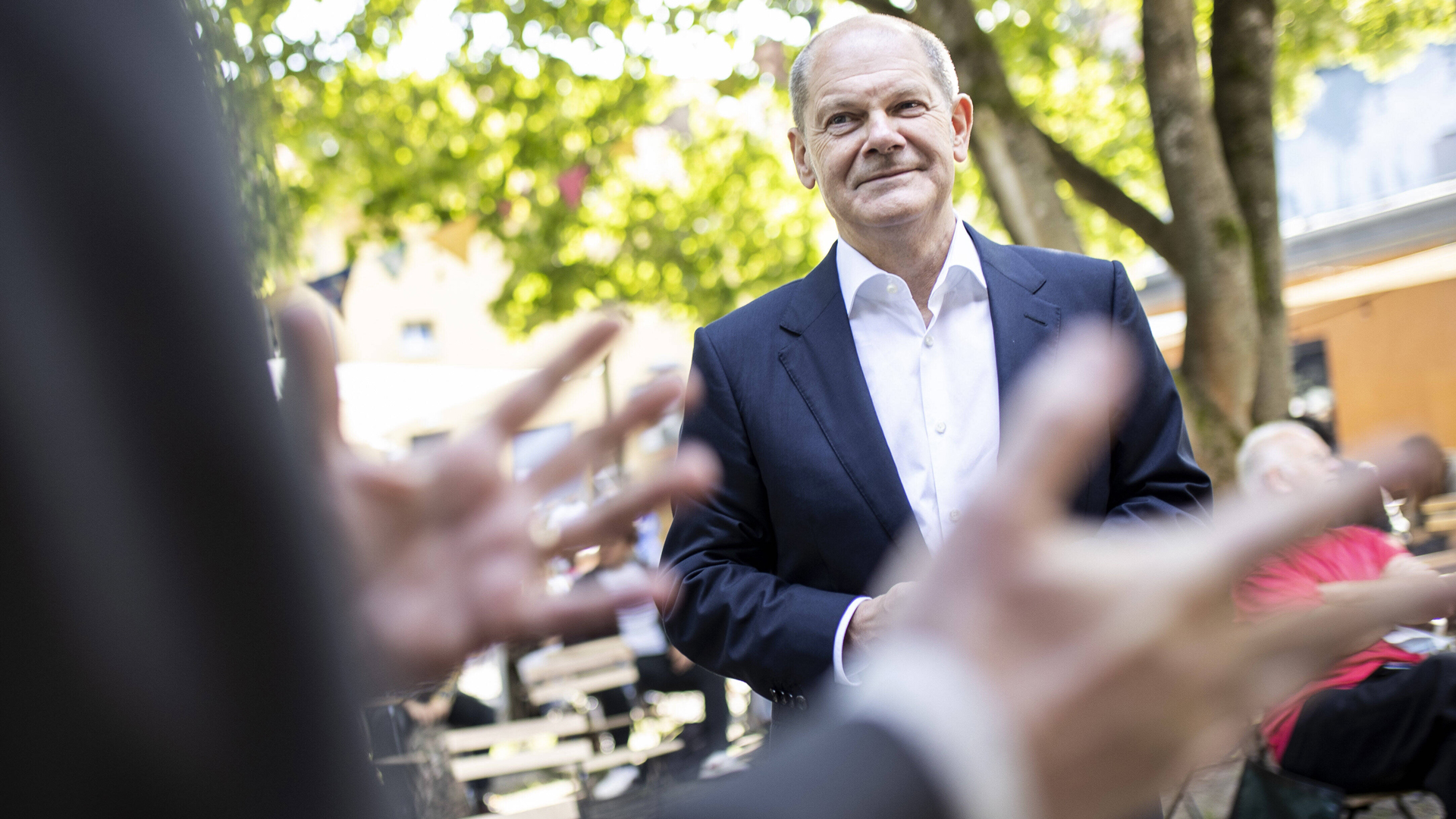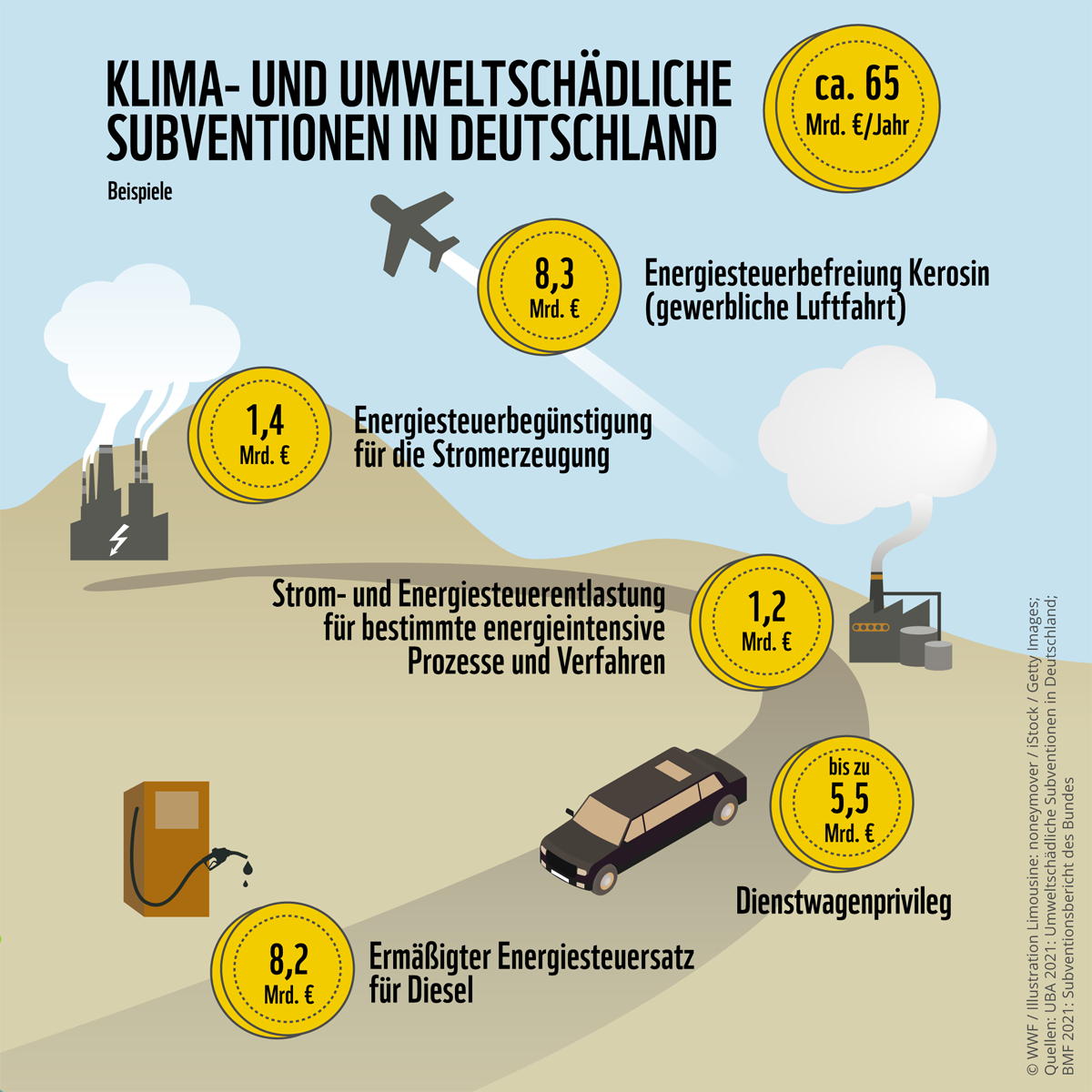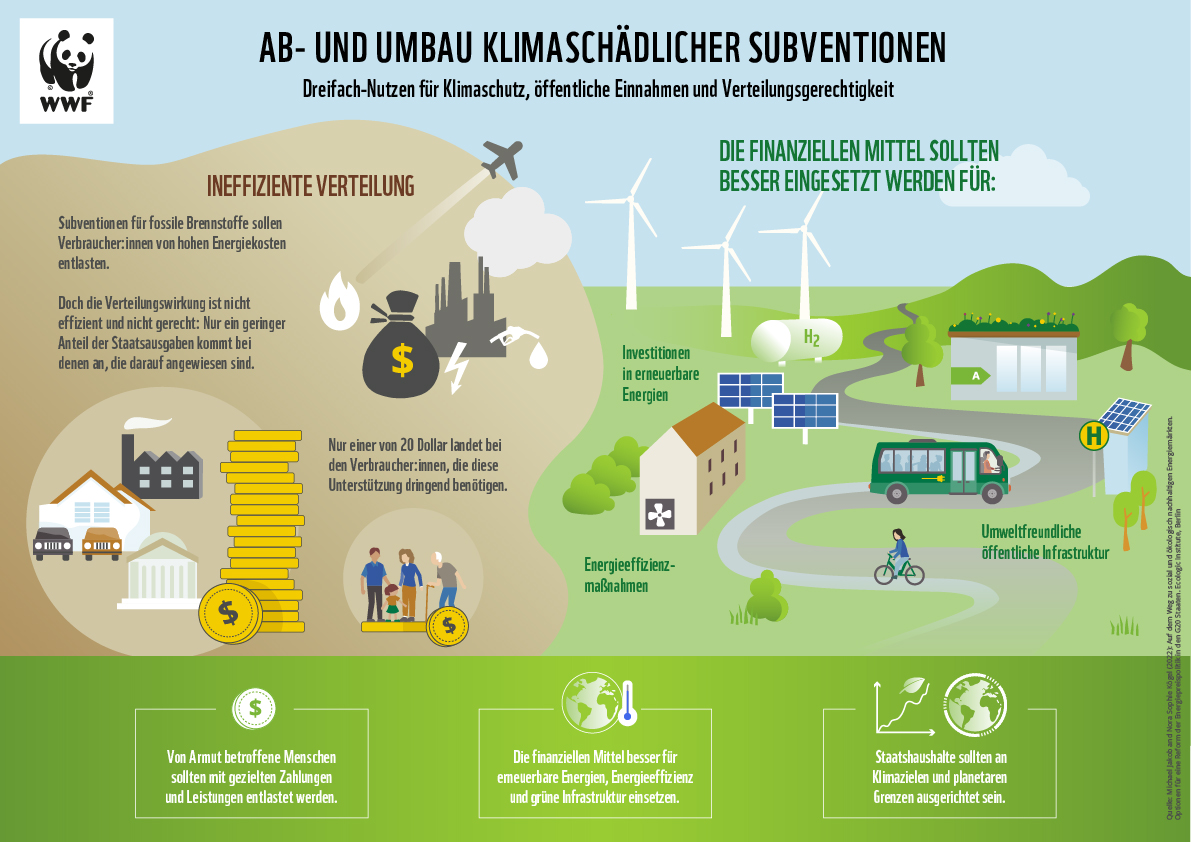Without a future-oriented budget policy, Germany cannot do its own Environmental and climate goals are not met. What the federal government urgently needs to do now.
As background: Every year there is the same or similar process for a federal budget. After the federal government agreed on key figures in the spring, all ministers will work out their own budget plans. These will then be put together in a federal government budget draft at the beginning of summer. After the summer break, the Bundestag will debate these drafts in detail in plenary and in committee meetings. Normally, the vote and final agreement on the federal budget for the next year takes place in November. And so the process of preparing the budget begins again…
Follow us on social media
This year, however, demands for cuts and disputes in the federal government are dominating the headlines. Finance Minister Christian Lindner did not present any key parameters this year and the government's draft budget also had to be postponed – to the latest possible date, July 5th. All because the finance minister wants to save more. But that is too short-sighted: cutting the federal budget today without a plan will cost us twice or three times as much tomorrow!

Germany urgently needs a real climate and future budget that is aimed at transforming our economy. The traffic light coalition already speaks about this in its coalition agreement and repeats this goal again and again. Chancellor Olaf Scholz recently said: Climate protection should be a priority in the 2024 federal budget. Just empty words? Or is the federal budget really aligned with our environmental and climate goals?
Too little money for good investments
There is still a lot of room for improvement at the moment. The sustainability impact of the federal budget is inconsistent and is paralyzing the transformation of our economy. More than 65 billion euros are still spent on environmentally harmful subsidies every year. This includes discounts for air travel and company cars, but also support for fossil fuel industries in the form of discounts on electricity and energy taxes. A credible climate and future budget must look fundamentally different.

Instead of spending billions on environmentally harmful activities, the state should actively stimulate the transformation towards an economy within planetary boundaries. This requires at least 46 billion euros per year in public investment. The federal government must invest directly, for example in order to make the energy and rail infrastructure environmentally friendly and climate-neutral. But the municipalities also provide support, for example for the expansion of local public transport. In addition, effective and fair funding programs must be set up so that, for example, houses can be renovated to make them more energy efficient.
Don't miss anything with the WWF newsletter!
If the federal government fails to make these necessary investments, Germany will not be sustainable, will miss the opportunities for a successful transformation and will suffer even more from the consequences of global warming. Researchers estimate the costs of the climate crisis for Germany to be between 280 and 900 billion euros by 2050. Today, extreme weather conditions – such as the flood disaster in the Ahr Valley in 2021 – cost almost 130 billion euros per year on average. The longer it takes us to transform to a climate-neutral economy, the longer we delay adapting to the consequences of the climate crisis, the more expensive the bill will ultimately be for everyone.
Responsible budget policy for more climate protection
Sustainability management of the German federal budget would be a triple-win situation. The environment and climate would benefit from more and more targeted public effort for transformation. More sensible and targeted relief would even save money compared to the current federal budget. And the social sustainability of the transformation would be helped. Because many privileges, such as company car taxation, mostly benefit higher earners.

There is only one logical answer for German budget policy: to consistently align the federal budget with the requirements of the transformation towards a sustainable economy. In countries like France and Austria, public spending has long been examined for its sustainability impact. The German federal government, on the other hand, is still at the very beginning of its efforts to use budget policy as an instrument for climate protection. The federal government published a first report on this topic in December 2022, but it still has many weaknesses and is not ambitious enough.
We must not allow short-term political interests to slow down the transformation of our economy. We must now use our money specifically and effectively so that Germany does not fall deeper into the climate crisis. To this end, environmental and climate goals must be firmly integrated into the annual preparation of the federal budget.
Follow us on social media:

